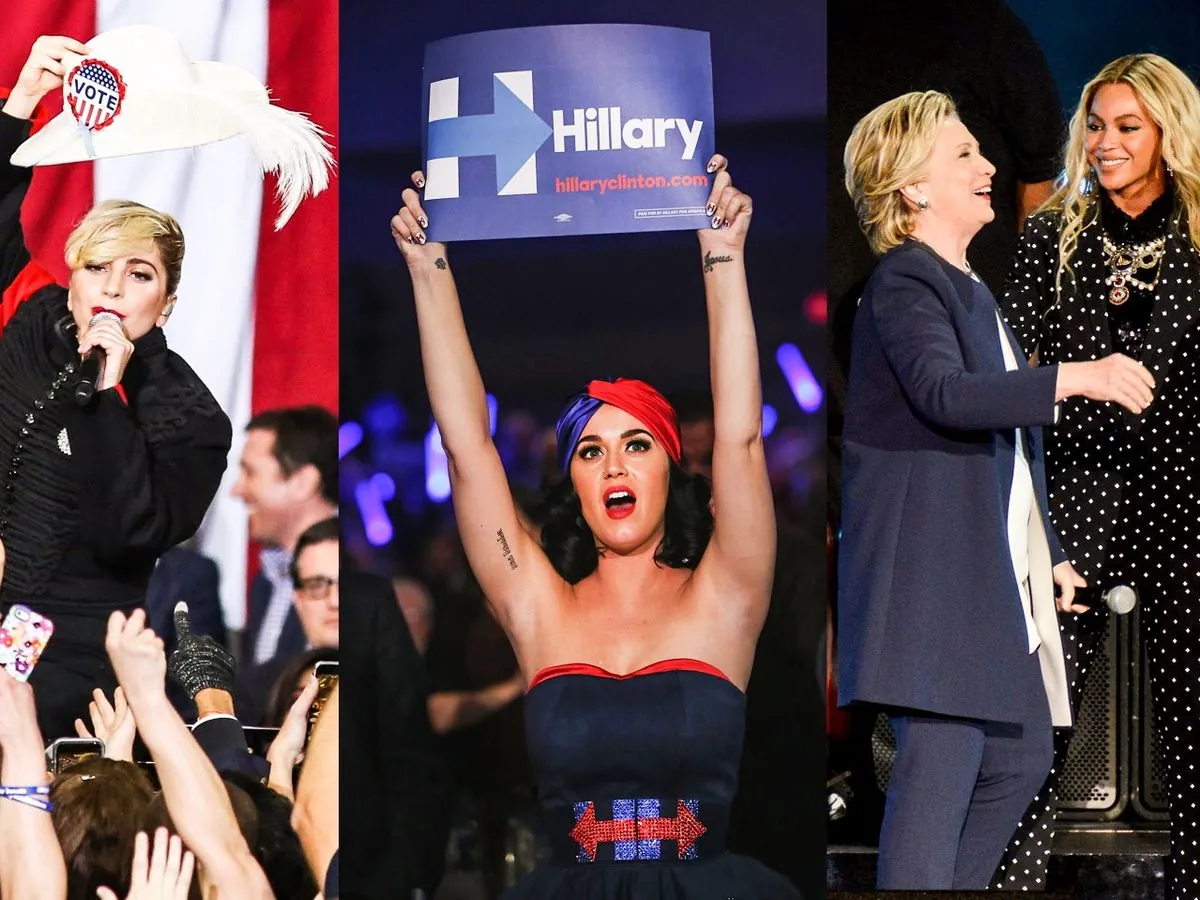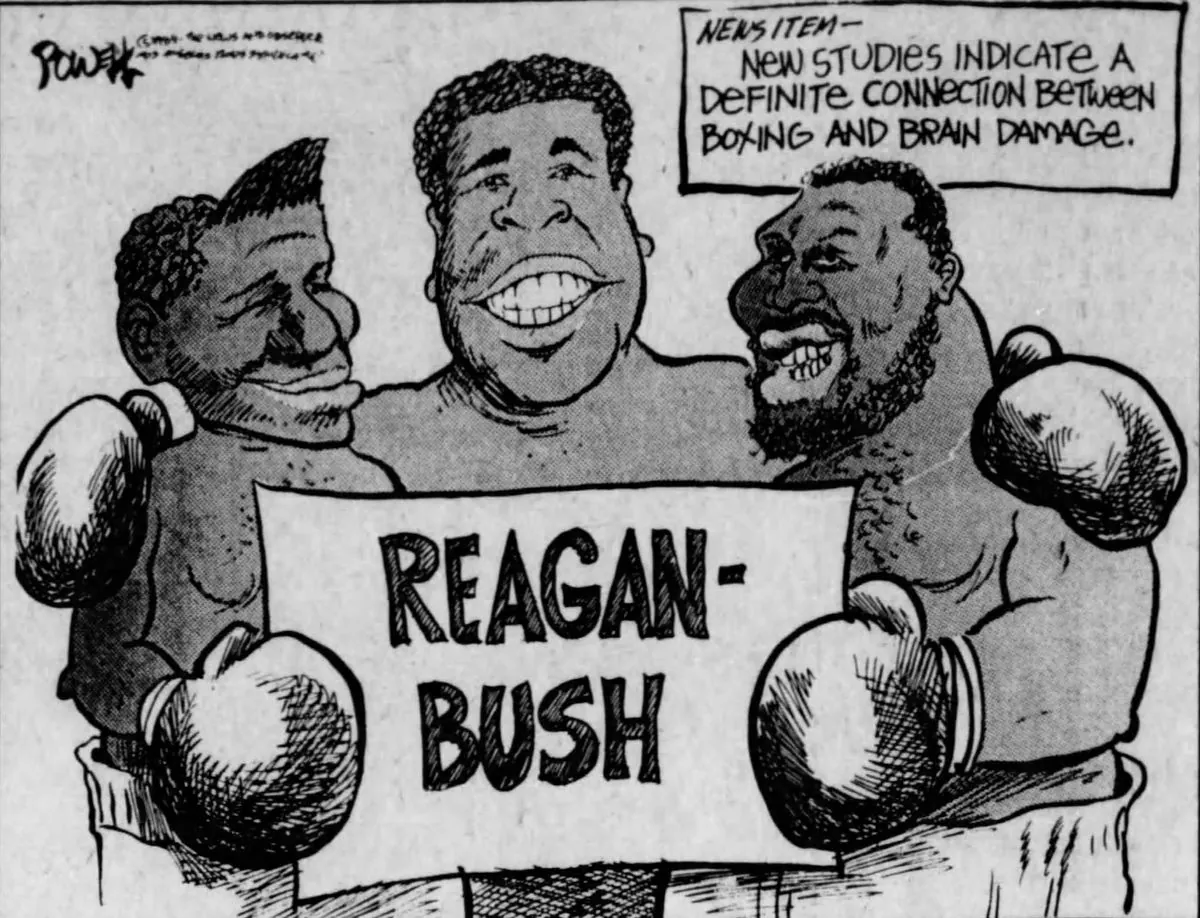Celebrity Endorsements in US Politics: A Century-Long Tradition
From silent film stars to pop icons, celebrity endorsements have been a staple of US presidential campaigns for over 100 years. This article explores their evolution and impact on elections.

The practice of celebrity endorsements in US presidential campaigns has a rich history spanning over a century. This tradition, which began in 1920 with silent film stars supporting Warren G. Harding, has evolved to include some of the biggest names in entertainment, sports, and popular culture.
The concept of celebrity endorsements in politics was pioneered by the Chicago ad agency Lord & Thomas. They arranged for 70 theater and film stars to visit Harding's home in Marion, Ohio, where they performed a custom song titled "Harding, You're the Man for Us." This event marked the beginning of a long-standing relationship between celebrities and presidential campaigns.
Throughout the years, many notable figures have lent their support to various candidates. Babe Ruth, the legendary baseball player, was offered $4,000 to endorse Harding in 1920 - a substantial sum equivalent to 40% of his annual salary. Although he initially agreed, Ruth later backed out due to the "Black Sox" scandal.
"FDR is a great man, but Thomas Dewey is the new pitcher the White House needs."
Celebrity endorsements have not always been consistent, with some figures switching allegiances over time. Frank Sinatra, for instance, supported John F. Kennedy in 1960, even recording a version of "High Hopes" with lyrics supporting the candidate. However, by 1980, Sinatra had shifted his support to Republican Ronald Reagan.
Similarly, baseball icon Jackie Robinson initially endorsed Republicans, including Richard M. Nixon in 1960. However, by 1968, Robinson had turned against Nixon due to his "Southern Strategy" and instead supported Democrat Hubert Humphrey.

In more recent years, celebrity endorsements have continued to make headlines. Oprah Winfrey's 2008 endorsement of Barack Obama was particularly notable, with economists estimating that it gained him 1 million additional primary votes. Taylor Swift, who remained politically neutral for years, finally broke her silence in 2018 by endorsing Democrats in her home state of Tennessee.
Despite the long history and high-profile nature of celebrity endorsements, their actual impact on general election outcomes remains questionable. The 2016 election serves as a prime example, where the Democratic National Convention featured significantly more A-list celebrities than its Republican counterpart, yet the Republican candidate ultimately won the presidency.
As we approach future elections, it's clear that celebrity endorsements will continue to be a part of the political landscape. However, their true influence on voter behavior and election results remains a topic of debate among political analysts and historians alike.


































